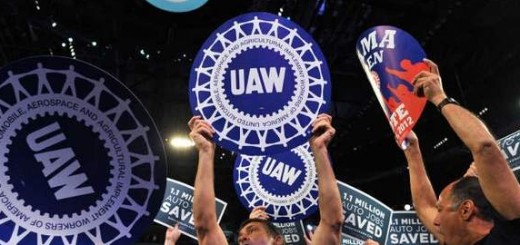Subsidizing idleness.

Does the name Art Laffer ring a bell? It should. He’s an economist who served on Ronald Reagan’s economic team for both Reagan terms.
Laffer is the man who lends his name to the “Laffer Curve.” The Laffer Curve is an illustration of the economic facts of taxation. According to the Laffer Curve, when you set the tax rate at zero you (obviously) collect zero tax revenue. But set the tax rate at 100 percent and you also collect zero tax revenue. That’s because at a tax rate of 100 percent, there is no incentive for anyone to engage in taxable activity. The Laffer Curve illustrates the concept of potential diminishing returns attendant to raising tax rates.
And there you see Laffer’s genius. It lies in his ability to reduce complex economic arguments to simple, easily understood common language.
Laffer displayed that genius Monday morning on the Glenn Beck radio program. He was talking about the labor shortage that is affecting nearly every aspect of daily life. From coffee shops to assembly lines, employers are having trouble attracting workers.
Laffer summarized the problem with characteristic clarity.
When you tax people who work, and pay people not to work, don’t be surprised when a lot of people choose not to work.”
And there it is – in plain, ordinary English. U.S. economic policy has arrived at the place where able-bodied people are making the dollars and cents determination that they are better off staying at home collecting unemployment benefits than they would be if they got up and went to work.
Though I hate to use the overused word I can’t think of another one. So here it is.
Unsustainable.
This is how societies decay. Paying people not to work is an obvious disincentive to productive behavior. It has been proven that the longer one is out of the workforce the harder it becomes to return until one day going back to work becomes literally impossible.
We have also seen what happens when fewer and fewer workers are burdened with supporting more and more recipients of taxpayer-funded benefits. In millions of incremental ways, productive behavior declines until one day productivity is insufficient to meet the basic needs of society. That is exactly what happened in the once prosperous but now socialistic hellhole called Venezuela. It is exactly why desperate citizens 90 miles from our shore are at the moment of this writing literally risking their lives protesting the miserable economic conditions in communist Cuba.
A prosperous and decent society can legitimately make provisions to help those who find themselves the victims of an economic crisis not of their own making. The mechanisms of unemployment insurance, when properly used, facilitate the marketplace for labor.
But unemployment insurance has been perverted into subsidizing willful idleness. Such is not how a strong nation was built. It is not how a strong nation can hope to remain so.
So if you’re sitting home watching Netflix while drawing unemployment, know this. The pandemic’s over. Across the country employers are desperate for help. Unless a physical or mental incapacity renders you unable, it’s time to go to work.








I see this daily.
More and more establishments have ‘Help Wanted’ postings on their doors.
I don’t believe in coincidences but I am also seeing more and more ‘Handicapped Only’ parking spaces completely full and the occupants of those vehicles bouncing out of them who are more mobile than I.
Not a coincidence – an eventuality.
Heard you on my radio just before 8 o’clock earlier this Friday morning on KTBB 97.5FM as you voiced this column to those who were listening far and wide.
Outstanding writing and announcing skills, Mr. Gleiser, in yet another 5 star piece exposing how Democrats are always scheming to raise taxes more & more on ALL citizens and promote the failure of socialism, and how these tired old ideas are utter rubbish! These asinine ideas are the enemy of American free enterprise Capitalism and EVERY American employee, and entrepreneur, who works to provide for themselves and their family.
REJECT socialist-Marxist-fascist-communism as there is nothing but despair, evil, poverty, and death bound up in them as millions have died under “the jackboot” of this “so-called utopia of Stalin and Mao and Castro.”
Instead, PROCLAIM Life, Liberty, Freedom, Capitalism, and THE UNITED STATES as Founded in 1776, and your GOD given right to pursue happiness in the greatest country –AMERICA– of all time in the history of mankind.
Forever may our grand Constitutional Republic stand!
It is long past time to drop the hammer on those that refuse to work .
My wife and I drove to Ft. Myer’s, Florida for a holiday and to see her mother; that is a 3300 mile round trip by automobile. All the Gulf coastal states are in this same situation. Help wanted signs plastered everywhere. Many fast food establishments were drive through only due to lack of help. The Walmart’s and Neighborhood Walmart’s all had help wanted with pay scales posted. On Ft. Myer’s Beach island, quiet a few of the “souvenir shops” had “For Sale” signs but were trying to stay open in order to pay bills. Houses on Ft. Myer’s Beach island were renting cheaper than a Holiday Inn for the Fourth of July. I definitely agree with Mr. Fasanello, it is time to cut this so called free money off and get people off the couch back to work quickly.
The democrats seem intent on forcing a $15/hr minimum wage on the country. They fail to consider all the skilled labor positions that do not yet pay that wage, nor the inability of the owners of many of those businesses to absorb the cost of the increase in payroll. Therefore the cost will be passed on to the consumer whenever possible, or result in the loss of the business in MANY cases. My boss employees 8 people with a paint company. He charges an amount per square foot for a paint job, and pays his workers $12 – 18/hr. based on skill and experience. However, if McDonald’s pays a fry cook $15/hr fresh out of school, how much is a painter with 26 years experience worth? How much will that paint job cost as a result? Or a happy meal? The paint job cannot go up without the builder losing money or raising the price of the house. Ditto the happy meal. Soon enough that economy will come crashing down.
So I guess based on that example ( scenario)which is common and used often by talking heads etc, things are what they are,accept it .Things aren’t likely to improve much for the majority ( average citizen)and expect a continuing steady decline in the “middle class” then . So the bottom line will always be ,those at or near the top will not and should never be expected to loose a drop, it will and should be passed down to the majority, quite a deal I have to say. At 26 yrs experience, and still reasonably ( opinion) physical able, $25.00 hr I think a painter is worth. My how things have changed economically, we’ll say since the 50s economy more or less, especially since the 80s. Love it or leave it as I’ve heard.
If my wage were to inçrease to $25 the cost to paint our average house would likely exceed $100k. My job would end once the current contracts are fulfilled. I suppose I could go to work at McDonald’s! My point is that a job cannot pay any more than someone is willing to pay to have it done. Soon enough even $15/hr. won’t be sufficient.
Neighbor of mine is a petroleum products salesman. Traveled to Austin last week and decided to eat at Chick-Filet. We were discussing this very issue of minimum wage and the money these fast food industries are wanting to throw at new employee’s. You know all the cost of doing business IS passed along to you and I. His #1 combo meal and a shake cost him $18.00; where in Jacksonville, TX it would cost approx. $11.00 which is still to expensive for a small chicken sandwich, fries, drink, and a shake. We definitely are going to bare the burden of this madness.
So the madness is excessive greed ? I have a suggestion let lot of these places shutdown then,there’s far to many. Eat at home,have more good Ole quality time with family. Return to the family values thing,men can help with the cooking. Brown bag it to work. These folks can find jobs elsewhere, work hard,go after what you want,be successful. There’s is no better place for opportunities, economies evolve, it will work itself out.
Kind of hard to eat at home when you are on the road.
Take something with you like folks used to do in the ( Good Ole Days) so many seem to long for,or they say they do, like folks say a lot of stuff,until their inconvenienced a little, oh well.
If you want to see an economy come crashing down, if seriously saving money catches on. Many conservatives often suggest people should save more,quite spending needlessly , if you can’t pay cash you don’t need it maybe? Except a house and auto . Control that unessaary spending on retail therapy as it’s often called,only buy if it’s needed not a want. That would undoubtedly crash our economy. Save,save save,for retirement, so no welfare will be needed, no medicaid,Medicare. REP.Boebert ( Colorado) at resent convention in Dallas said conservatives don’t want no help from government, no welfare etc.Looks like a big drop in welfare recipients is coming then,that’s a good thing.
What an excellent essay regarding idleness and the citation of Art Laffer! This is not a criticism of those choosing not to work, but a condemnation of a government policy that offers these options. We have to admit that the more financially rewarding option would make even the most industrious people think twice about getting off the couch. It is a well-tested Marxist ploy to destroy a person’s self-reliance and independence, and an important step toward population control. Let me make this point one more time….the people in Venezuela and every other country that fell for the promise of government largesse now have their children and grandchildren spitting on their graves! This disdain is only after they are finished chasing garbage trucks for something to eat! Of course, the garbage is the leftovers of those who were promising all the free stuff!